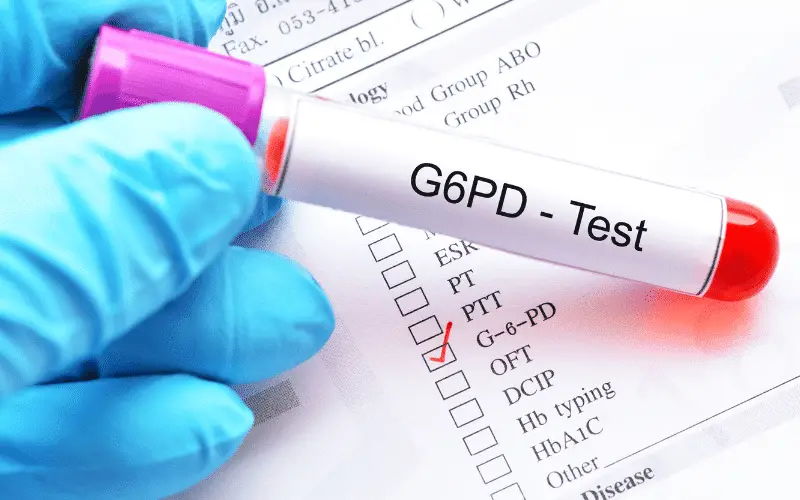Cause 3: G6PD Deficiency

A Metabolic Enzyme Defect with Far-reaching Consequences
Glucose-6-phosphate dehydrogenase (G6PD) deficiency is a genetic disorder that affects the function of an essential enzyme in red blood cells. G6PD plays a crucial role in protecting RBCs from oxidative stress, which can damage and ultimately destroy these cells.
Individuals with G6PD deficiency have a reduced ability to neutralize harmful substances, making their red blood cells more vulnerable to damage from certain medications, foods, and infections. This increased susceptibility can lead to a rapid breakdown of RBCs, causing hemolytic anemia.
The severity of G6PD deficiency varies widely, with some individuals experiencing only mild symptoms or remaining asymptomatic, while others may have severe, life-threatening episodes of hemolysis. Identifying and avoiding known triggers, such as certain medications and foods, is vital in managing G6PD deficiency and preventing complications.
Early diagnosis and proper management of G6PD deficiency can significantly improve the patient’s quality of life and reduce the risk of severe hemolytic episodes. Education about potential triggers and appropriate preventative measures is essential for those living with this condition. (3)